Democrats Can Win the Argument and Lose the Election
Talking to volunteers, I saw the immensity of Obama's task, especially as the Romney-Ryan campaign and the Republican super PACs overwhelm the voters with misleading ads.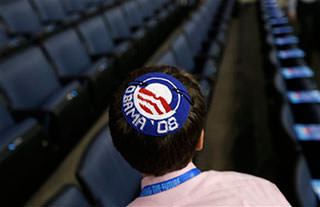
Rather than waste money attending the two national political conventions, I watched part of them on television and spent other hours interviewing campaign volunteers. I came away still disappointed at President Barack Obama’s failure to explain and sell what he has done in the past four years.
That was evident in a suburban home on the first day of the Democratic convention. Democratic volunteer Mary Blad told me that she was encountering the same difficulty that has dogged Obama: People still don’t understand the domestic accomplishment that may have the greatest long-range impact on American life — the Affordable Care Act.
“I bring up the services they were not getting before,” said Blad, one of thousands of Obama volunteers around the country making phone calls day and night to people in the battleground states that will probably decide the presidential election. When she talks to women, she tells them of the benefits insurance companies now must offer, including paying for contraception, breast feeding supplies, counseling for domestic violence, Pap tests and prenatal care. Blad said a common reply was, “Oh, I didn’t know that.”
It’s as though the president thinks it’s beneath him to tell Americans what he has done.
At the convention, the Democrats got a start, although the event wasn’t entirely smooth. A session was unexpectedly interrupted when Obama asked for a rewrite of the party platform to include the usual pledge (always ignored after the election) to recognize Jerusalem as Israel’s capital and to incorporate a mention of God. In following the president’s wishes, convention leaders weren’t aware of a rule promulgated by the late California Assembly Speaker Jesse M. Unruh that you never permit a vote unless you know the result. The convention chairman, Mayor Antonio Villaraigosa of Los Angeles, had followed Unruh into the speakership decades later but had not learned the Unruh rule. Two voice votes didn’t produce the vote Obama wanted. A third vote was just as inconclusive. Villaraigosa, over his head but following presidential orders, called it in Obama’s favor to a multitude of boos.
But this mistake was quickly forgotten when former President Bill Clinton gave a powerful defense of the administration that Obama should have given many months or even years before. Among the many subjects in Clinton’s lengthy speech was the one that Mary Blad had encountered in her phone calls: Obamacare.
Clinton ridiculed Mitt Romney, the Republican presidential nominee, and Paul Ryan, his running mate, for claiming Obama was robbing Medicare of $716 billion to pay for the Affordable Care Act. Clinton said, “Here’s what really happened. There were no cuts to benefits at all. None. What the president did was to save money by taking the recommendations of a commission of professionals to cut unwarranted subsidies to providers and insurance companies that were not making people healthier. … And instead of raiding Medicare, he used the savings to close the doughnut hole in the Medicare drug program — and to add eight years to the life of the Medicare trust fund so it is solvent till 2024.
“President Obama and the Democrats didn’t weaken Medicare; they strengthened Medicare,” Clinton continued. “Now, when Congressman Ryan looked into that TV camera and attacked President Obama’s Medicare savings … I didn’t know whether to laugh or cry — because that $716 billion is exactly, to the dollar, the same amount of Medicare savings that he has in his own budget. You got to get one thing — it takes some brass to attack a guy for doing what you did.”
It’s fortunate for the Democrats that Clinton was there. Anyone listening to the president’s acceptance speech would come away still uncertain about what Obamacare offers, and why the Republicans’ promise to dismantle it, Medicare and Medicaid (which provides medical aid for the poor) would be so destructive to the country.
The biggest break for Obama was the Republican convention, an event marked by deliberate vagueness and twisting of the truth. And that was even before the post-convention revelation by the publication Runner’s World that Ryan exaggerated his finishing time in a 1990 marathon, saying he completed it in “under three, high two” hours. Runner’s World discovered the time was actually 4:01:25. Sports, as the old cliché goes, doesn’t build character, it reveals it.
Ryan had been built up by the Washington media as a serious student of policy, a conservative willing to engage in a deep discussion over the direction of the budget. The details of his plan, which has become the Romney-Ryan budget, show how cruel and shallow it is: tax cuts for the top 2 percent; slashing Medicaid; turning Medicare into a voucher system; cutting food stamps; and greatly increasing defense spending.
Neither he nor Romney had the guts to be that specific at their convention. As Ezra Klein wrote in his Washington Post blog, “Bill Clinton made the policy case for Barack Obama. Neither Paul Ryan nor anyone else at the Republican convention made a sustained policy case for Mitt Romney.” Some of Ryan’s fans among journalists said he would bring youth and energy to the Republican team, as well as wipe out Vice President Joe Biden in their debate. But as I watched him, I agreed with the comparison made by blogger Ed Kilgore and editor Paul Glastris in the Washington Monthly. Ryan reminded them, Kilgore wrote, of Eddie Haskell, the unctuous friend of Wally Cleaver on the old television show “Leave It to Beaver.” Ryan may not wear well with the public.
I learned more from talking to the grass-roots workers than I did from watching the convention. The conventions are so heavily scripted and the politicians under such pressure to stick to the party line that it’s impossible to learn much from them, either on television or, judging from the sameness of the news reports, from being there.
I don’t like events with 15,000 reporters, 6,000 delegates and alternates and no suspense. I’d rather talk to Sheila Mickelson, president of the Westchester Democratic Club, who was manning a registration table at a shopping mall not far from Los Angeles International Airport. Voters, she has found, “are now aware and they are engaged and they are very polarized.” She, too, has found they don’t understand the Affordable Care Act.
Christian Hall was organizing a phone bank in Santa Monica, helping volunteers as they called prospective voters in the battleground state of Nevada. He said, “We’re especially going for the occasional voters,” those who don’t go to the polls every election.
Talking to volunteers, I saw the immensity of the Democrats’ task, especially as the Romney-Ryan campaign and the Republican super PACs overwhelm the voters with ads. “It’s amazing how they [voters] are buying into sound bites,” Mickelson said.
The morning after the Democratic convention, the August unemployment figures were only slightly improved from July. Obama faces a difficult two months, and he still must find a way to make his case.
Your support matters…Independent journalism is under threat and overshadowed by heavily funded mainstream media.
You can help level the playing field. Become a member.
Your tax-deductible contribution keeps us digging beneath the headlines to give you thought-provoking, investigative reporting and analysis that unearths what's really happening- without compromise.
Give today to support our courageous, independent journalists.

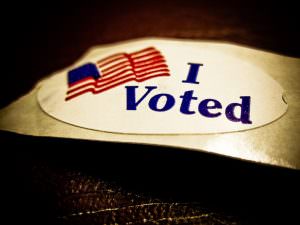
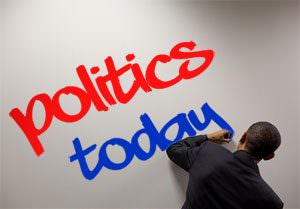
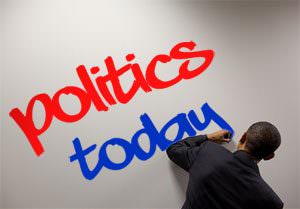
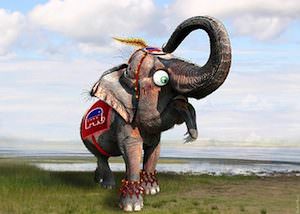
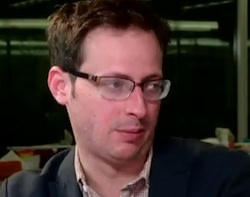
You need to be a supporter to comment.
There are currently no responses to this article.
Be the first to respond.